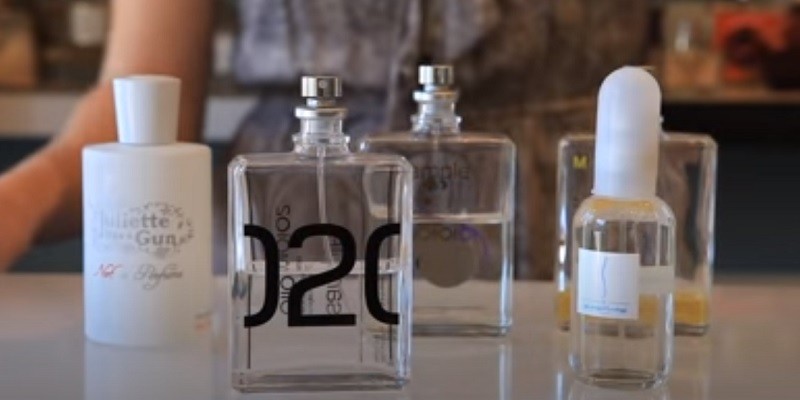Why Does Perfume Smell Different On Skin?
Last Updated on June 18, 2025 by Jaclyn A. Neeley
Perfume is a complex and fascinating subject, particularly when it comes to how it interacts with human skin. Many people have experienced the phenomenon where perfume smells delightful on a friend but not as appealing on themselves. This variation can be attributed to several factors, including skin chemistry, environmental conditions, and individual lifestyle choices. This article delves into the reasons why perfumes smell different on different people and how you can find the perfect scent for your unique body chemistry.
The Role of Skin Chemistry
What is Skin Chemistry?
Skin chemistry refers to the unique combination of biological and chemical factors present on an individual’s skin. These factors include the skin’s pH level, oil content, moisture levels, and the presence of bacteria. Each person’s skin chemistry is unique, which is why the same perfume can smell different on different people.
pH Levels
The pH level of human skin is typically slightly acidic, ranging from 4.5 to 5.5. This acidity helps maintain the skin’s barrier function, protecting it from harmful bacteria and moisture loss. The pH level can significantly impact how a perfume smells and lasts on the skin. When the skin’s pH is balanced, fragrances tend to adhere better and last longer. However, if the pH is disrupted by factors such as harsh skincare products or hormonal changes, the perfume may not perform as expected.
Oil Content
The oil content of the skin, also known as sebum, plays a crucial role in how a perfume develops. Oily skin tends to hold onto fragrance molecules better, allowing the scent to last longer and often making it more intense. Conversely, dry skin may cause the perfume to evaporate more quickly, resulting in a shorter-lasting scent.
Bacteria and Microbiome
The skin is home to a diverse array of bacteria, collectively known as the skin microbiome. These bacteria can interact with perfume molecules, sometimes altering the scent. For example, certain bacteria can break down fragrance compounds, leading to changes in the scent profile. This interaction is particularly noticeable in areas with higher bacterial activity, such as the underarms.
Environmental Factors
Temperature and Humidity
Environmental conditions, such as temperature and humidity, can also affect how a perfume smells on the skin. High temperatures can cause the top notes of a fragrance to evaporate more quickly, leaving the middle and base notes to dominate. In contrast, cooler temperatures can help preserve the top notes for a longer period. Humidity levels can also influence the longevity and intensity of a perfume. Humid conditions tend to retain fragrance on the skin longer than dry conditions.
Background Scents
The environment in which you wear a perfume can impact how it smells. Background scents, such as those from food, flowers, or other people’s perfumes, can interact with your fragrance, altering its perception. For instance, wearing a perfume at a barbecue might result in a different scent experience compared to wearing it at a wedding.
Personal Factors
Diet and Lifestyle
Your diet and lifestyle choices can significantly influence your skin chemistry and, consequently, how a perfume smells on you. Foods rich in spices, garlic, or onions can alter your natural body odor, which can interact with the perfume. Similarly, lifestyle factors such as stress, physical activity, and overall health can affect your skin’s oil production and pH levels, thereby impacting the fragrance.
Hormonal Changes
Hormonal fluctuations, such as those experienced during puberty, pregnancy, or menopause, can alter your skin chemistry. These changes can affect how a perfume smells on your skin. For example, increased oil production during puberty can make fragrances more intense, while hormonal changes during menopause might lead to drier skin, causing perfumes to evaporate more quickly.
Skin Type and Texture
The texture and type of your skin can also determine how a perfume performs. Well-moisturized or oily skin tends to hold onto fragrances better, while dry skin may cause the scent to dissipate quickly. Applying a lotion before your perfume can help improve its longevity by providing a better surface for the fragrance molecules to adhere to.
Testing and Choosing the Right Perfume
Testing Perfumes
To find a perfume that works well with your skin chemistry, it’s essential to test it under conditions similar to those in which you will typically wear it. Apply the perfume to your skin and observe how it develops over time. Pay attention to how the scent changes from the initial application (top notes) to the middle and base notes. Testing the perfume at different times of the day and in various environments can also provide a better understanding of how it will perform.
Using Blotting Papers
Before applying a perfume directly to your skin, you can use blotting papers, also known as mouillettes, to test the fragrance. These papers allow you to appreciate the olfactory notes without the interference of your skin’s natural pH and chemistry. However, it’s still crucial to test the perfume on your skin eventually, as the interaction with your skin chemistry will ultimately determine how it smells on you.
Tips for Enhancing Perfume Longevity
- Moisturize: Well-hydrated skin retains fragrances better. Apply an unscented lotion before spraying your perfume to help it adhere better and last longer.
- Pulse Points: Apply perfume to pulse points, such as the neck, wrists, and behind the ears, as these areas tend to be warmer and help to gradually release the scent.
- Fragrance Layers: Use products from the same perfume line, such as shower gels and body creams, to enhance the longevity of the fragrance on your skin.
Conclusion
The way perfume smells on your skin is influenced by a myriad of factors, including your skin chemistry, environmental conditions, and personal lifestyle choices. Understanding these factors can help you choose a fragrance that complements your unique body chemistry and ensures that you smell your best. By testing perfumes under various conditions and taking steps to enhance their longevity, you can find the perfect scent that works harmoniously with your skin.
FAQs
Why does my perfume smell different on me?
The perfume smells different on each person due to individual skin chemistry, which includes factors like pH levels, skin type, and natural oils. These elements interact with the fragrance compounds, altering the scent. Additionally, body temperature, diet, and hormonal changes can also influence how a perfume develops and smells on your skin.
How do I know if my perfume smells good on my skin?
To determine if a perfume smells good on your skin, apply it to your pulse points and wait for it to develop over time. The scent should remain pleasant and harmonious as it evolves through its top, middle, and base notes. If you enjoy the fragrance and it feels comfortable, it likely suits your skin chemistry.
Does perfume smell better on the skin or clothes?
Perfume can smell different on skin and clothes. On skin, it interacts with natural oils and body heat, creating a unique and evolving scent. On clothes, the fragrance tends to last longer but may not develop as intricately. The choice depends on personal preference and the desired longevity and complexity of the scent.
How does humidity specifically affect the longevity of a perfume on the skin?
Humidity enhances the longevity of perfume on the skin by keeping it moist, which slows down the evaporation rate of the fragrance molecules. This allows the scent to linger longer and project more effectively. In contrast, dry conditions can cause the perfume to evaporate quickly, reducing its lasting power.
What role does diet play in altering the scent of a perfume?
Diet can impact how a perfume smells by influencing body chemistry and natural body odor. Foods with strong flavors, like garlic or spices, can mix with the fragrance and create a unique scent combination. Additionally, maintaining proper hydration can enhance perfume retention and development on the skin.







